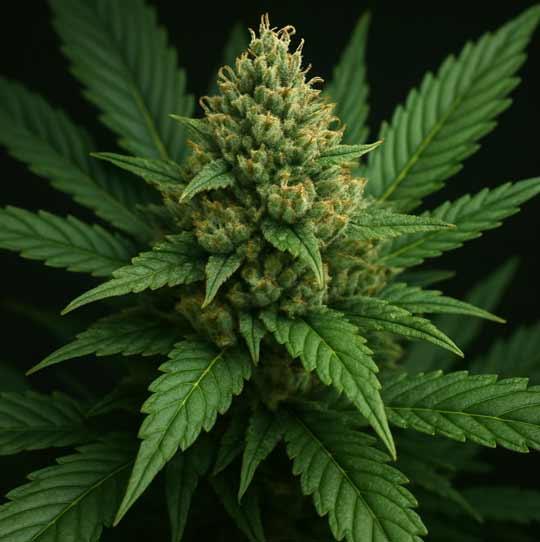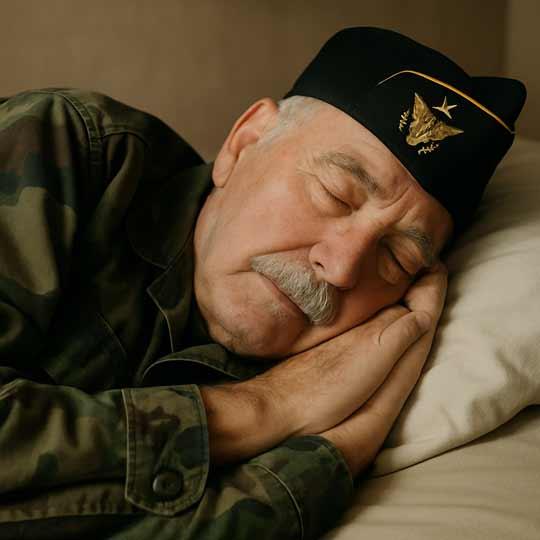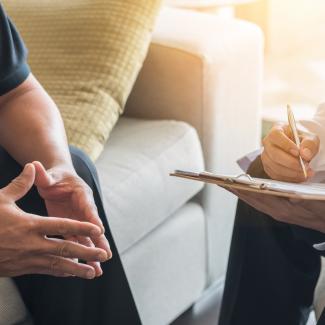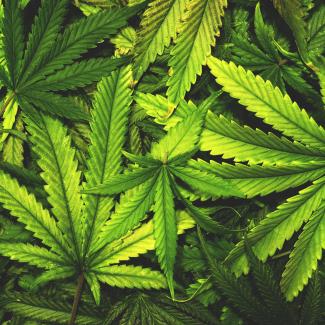Veterans face a multitude of challenges when transitioning back to civilian life, often compounded by the physical and psychological scars of their service. Chronic pain, PTSD, anxiety, and insomnia are just a few of the health issues that can be prevalent among this group. Traditional medications sometimes fail to provide adequate relief or come with undesirable side effects, prompting a search for alternative therapies. Medical marijuana has emerged as a promising option, offering potential relief where conventional treatments may fall short.
Medical marijuana is derived from the Cannabis plant, which contains a variety of active compounds known as cannabinoids. Among these, THC (tetrahydrocannabinol) and CBD (cannabidiol) are the most well-known and studied. THC is responsible for the psychoactive effects commonly associated with marijuana use, contributing to the "high" sensation. On the other hand, CBD is non-psychoactive and is believed to offer a wide range of health benefits, including anti-inflammatory, analgesic, and anxiolytic effects.
The therapeutic potential of medical marijuana lies in its interaction with the body's endocannabinoid system, a complex network of receptors that regulate various physiological processes. This interaction can influence everything from pain sensation to mood and sleep, making cannabis a versatile tool in managing multiple symptoms. While ongoing research seeks to fully understand the breadth of marijuana's medicinal properties, anecdotal evidence from veterans and preliminary studies suggest significant promise.

Pain Management
Chronic pain is a prevalent issue among veterans, often the result of injuries sustained during military service or the physical demands of their roles. Traditional pain management options, such as opioids, come with risks of dependence and adverse side effects. Medical marijuana offers an alternative, as cannabinoids have been shown to reduce pain by interacting with the body's endocannabinoid system. This system plays a crucial role in pain regulation, making cannabis a potentially effective tool for alleviating discomfort.
Studies have demonstrated that medical marijuana can significantly reduce chronic pain levels, leading to improved quality of life. Veterans using cannabis for pain management have reported a decrease in the need for opioids, which can be life-changing given the current opioid crisis. The ability of marijuana to provide relief without the same risk of addiction makes it a compelling option for veterans seeking safer pain management strategies.
PTSD and Anxiety Relief
Post-Traumatic Stress Disorder (PTSD) is a debilitating condition affecting many veterans, characterized by symptoms such as anxiety, nightmares, and flashbacks. Traditional treatments often include a combination of therapy and prescription medications, but these are not universally effective and can have limitations. Medical marijuana offers an alternative approach, with studies indicating its potential to alleviate PTSD symptoms by modulating stress responses and promoting a sense of calm and relaxation.
Cannabinoids, particularly CBD, have been shown to impact the brain's response to stress and fear, which can help reduce the severity of PTSD symptoms. Veterans using medical marijuana have reported fewer nightmares and flashbacks, improved mood, and a greater ability to cope with daily stressors. While more research is needed to fully understand the impact of cannabis on PTSD, the positive experiences of many veterans highlight its potential as a valuable component of PTSD management.
Insomnia and Sleep Disorders

Sleep disorders are a common issue among veterans, often exacerbated by PTSD or anxiety. The inability to achieve restful sleep can have a profound impact on overall well-being and daily functioning. Medical marijuana, particularly strains high in CBD, has shown promise in improving sleep quality and regulating sleep patterns. Cannabinoids may help facilitate deeper, more restful sleep by interacting with the body's endocannabinoid system.
Research suggests that cannabis can reduce the time it takes to fall asleep and increase the duration of sleep, contributing to a more restorative rest. For veterans struggling with insomnia, medical marijuana can offer a natural alternative to prescription sleep aids, which often come with side effects and the risk of dependency. Improved sleep can lead to better mental health, increased energy levels, and enhanced quality of life for veterans.
Legal Aspects and Accessibility
Obtaining a Medical Marijuana Card
For veterans residing in states like Florida, obtaining a medical marijuana card is a critical step in accessing treatment. The process involves consulting with a certified physician who evaluates the veteran's condition to determine if medical marijuana is a suitable option. This evaluation considers the veteran's medical history, current symptoms, and previous treatments. Once approved, veterans can register with the state's medical marijuana program to receive their card, granting them legal access to cannabis for medicinal use.
Navigating the process of obtaining a medical marijuana card can be daunting, but resources are available to assist veterans in understanding their eligibility and the steps involved. Many veterans find that the benefits of medical marijuana in managing their symptoms far outweigh the challenges of the application process. As awareness of cannabis's therapeutic potential grows, more states are developing streamlined systems to facilitate access for those in need.
For more information on obtaining a medical marijuana card in Florida, visit the https://knowthefactsmmj.com/.
Navigating VA Policies
It's important to note that while medical marijuana is legal in many states, it remains illegal at the federal level. This discrepancy poses challenges for veterans receiving care through the Department of Veterans Affairs (VA). The VA does not prescribe medical marijuana nor cover its cost, which can complicate treatment plans for veterans who rely on VA healthcare services. However, veterans are encouraged to discuss their use of medical marijuana with their VA healthcare provider to ensure coordinated care and avoid potential conflicts with other treatments.
Despite federal restrictions, some VA facilities are adopting more progressive stances, allowing open discussions about cannabis use and its potential benefits. Veterans are advised to keep an open line of communication with their healthcare providers and advocate for their needs. As the legal landscape evolves, there is hope that federal policies will eventually align with state regulations, allowing for broader access to medical marijuana for veterans.
For more details on VA policies regarding medical marijuana: https://www.va.gov/healthbenefits/.
Real-Life Stories: Veterans and Medical Marijuana
Many veterans have shared personal stories of how medical marijuana has significantly improved their quality of life. Media outlets and documentaries have highlighted veterans who have found relief from chronic pain and PTSD symptoms through medical marijuana, allowing them to reduce or eliminate the use of opioids and other medications. These real-life accounts provide compelling evidence of the potential benefits of cannabis as a therapeutic tool for veterans.

Case Study: John Doe's Journey
John Doe, a veteran from Florida, struggled with PTSD and chronic pain for years following his military service. Despite trying a range of traditional medications, he found little relief and often dealt with unwanted side effects that affected his daily life. After obtaining a medical marijuana card, John began using cannabis as part of his treatment plan. He reports significant improvements in his anxiety levels and sleep quality, which have allowed him to lead a more fulfilling and active life.
John's story is just one example of how medical marijuana can offer a new lease on life for veterans grappling with complex health challenges. By reducing reliance on pharmaceuticals and managing symptoms more effectively, veterans like John can achieve greater autonomy and well-being. As more veterans share their experiences, the conversation around cannabis and its therapeutic potential for this population continues to grow.
The Future of Medical Marijuana for Veterans
The landscape of medical marijuana is continually evolving, with ongoing research and advocacy efforts aimed at expanding access and understanding. Organizations dedicated to cannabis research are conducting studies to further explore its benefits for veterans, contributing to a growing body of evidence supporting its use. These efforts are crucial in shaping future policies and ensuring that veterans have access to the treatments they need.
Legislative Efforts and Advocacy
Advocacy groups are tirelessly working to change federal laws to recognize the therapeutic potential of medical marijuana for veterans. These organizations are pushing for policy changes that would allow veterans to access medical marijuana through the VA system, ensuring it is both accessible and affordable. Such legislative efforts aim to bridge the gap between state and federal regulations, ultimately providing veterans with more comprehensive healthcare options.
By raising awareness and lobbying for change, these groups hope to create a more supportive environment for veterans who can benefit from medical marijuana. Their work is instrumental in challenging stigma, promoting education, and advocating for policy reforms that reflect the evolving understanding of cannabis as a legitimate medical treatment. As public opinion shifts and research continues to support its benefits, the future looks promising for veterans seeking relief through medical marijuana.
Conclusion
Medical marijuana presents a promising alternative for veterans seeking relief from chronic pain, PTSD, and other service-related health issues. While legal and regulatory hurdles remain, the growing body of research and positive anecdotal evidence underscore the potential benefits of cannabis as part of a comprehensive treatment plan for veterans. As awareness and acceptance increase, medical marijuana could play a crucial role in improving the quality of life for those who have served our country.
For further reading and resources on medical marijuana and veterans, visit https://norml.org/ and the https://www.legion.org/ websites. These resources provide valuable information on the latest research, advocacy efforts, and practical guidance for veterans considering medical marijuana as part of their healthcare strategy.
























